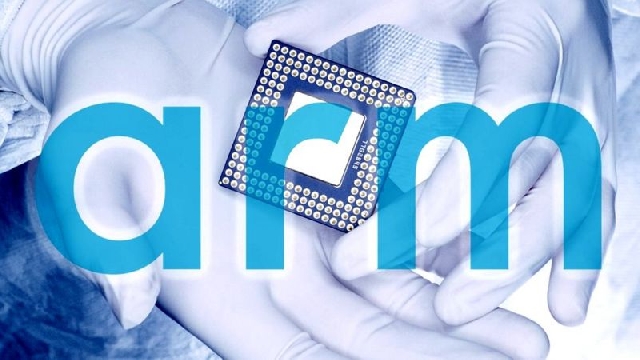UK-based computer chip designer ARM Holdings is being sold to the American graphics chip specialist Nvidia.
The deal values ARM at $40bn (£31.2bn), four years after it was bought by Japanese conglomerate Softbank for $32bn.
ARM's technology is at the heart of most smartphones, among many other devices.
Nvidia has promised to keep the business based in the UK, to hire more staff, and to retain ARM's brand.
It added that the deal would create "the premier computing company for the age of artificial intelligence" (AI).
"ARM will remain headquartered in Cambridge," said Nvidia's chief executive Jensen Huang.
"We will expand on this great site and build a world-class AI research facility, supporting developments in healthcare, life sciences, robotics, self-driving cars and other fields."
A senior government source told the BBC that there would not be a move to block the sale, but that conditions could be imposed on the takeover.
This appears to address concerns that British jobs would be lost and decision-making shifted to the US. Last week,
the Labour Party had urged the government to intervene.
But two of ARM's co-founders have raised other issues about the takeover.
Hermann Hauser and Tudor Brown had suggested ARM should remain "neutral", rather than be owned by a company like Nvidia, which produces its own processors.
The concern is that there would be a conflict of interest since ARM's clients would become dependent on a business with which many also compete for sales.
Moreover, the two co-founders also claimed that once ARM was owned by an American firm, Washington could try to block Chinese companies from using its knowhow as part of a wider trade clash between the countries.
"If ARM becomes a US subsidiary of a US company, it falls under the Cfius [Committee on Foreign Investment in the United States] regulations," Mr Hauser told BBC Radio 4's Today programme.
"[That] means that if hundreds of UK companies that incorporate ARM's [technology] in their products, want to sell it, and export it to anywhere in the world including China - which is a major market - the decision on whether they will be allowed to export it will be made in the White House and not in Downing Street."
He added that he believed the pledge to retain and increase the number of UK jobs was "meaningless" unless UK ministers stepped in to make it legally enforceable.
Nvidia has said that it intends to maintain the "global customer neutrality" on which ARM's success rests.
ARM creates computer chip designs that others then customise to their own ends.
It also develops instruction sets, which define how software controls processors.
It is based in Cambridge but also has offices across the world, including a joint venture in Shenzhen, China.
Hundreds of companies license its innovations including Apple, Samsung, Huawei and Qualcomm.
To date, ARM says 180 billion chips have been made based on its solutions.
When Softbank acquired ARM, it promised to keep the company's headquarters in the UK and to increase the number of local jobs, which it did.
Softbank's founder Masayoshi Son described the firm as being a "crystal ball" that would help him predict where tech was heading.
But losses on other investments, including the office rental company WeWork, prompted a rethink.
California-headquartered Nvidia overtook Intel to become the world's most valuable chipmaker in July.
Until now, it has specialised in high-end graphics processing units (GPUs).
These are commonly used by gamers to deliver more detailed visuals, as well as by professionals for tasks including scientific research, machine learning, and cryptocurrency "mining".
Nvidia is also one of ARM's clients, using its designs to create its line-up of Tegra central processing units (CPUs).
Under the terms of the deal, Nvidia will pay Softbank $21.5bn in its own stock and $12bn in cash. It will follow with up to a further $5bn in cash or stock if certain targets are met.
Nvidia will also issue $1.5bn in equity to ARM's employees.
 ARM
ARM













